Knowing when to change your guitar strings can be tricky. Especially if you are a beginner and you don’t know all the signs of how it should look, feel or sound a good set of strings. Also, you probably don’t want to change the strings too often as it is time-consuming and costs money.
So, How often should you change your guitar strings? As a rule of thumb for most players changing strings should be done every 2 to 3 months.
But if we dive deeper into considering other factors such as the player’s habits and body characteristics and the type of guitar strings. This recommendation to change your strings can be shorter or longer.
How Long Are Guitar Strings Supposed To Last?
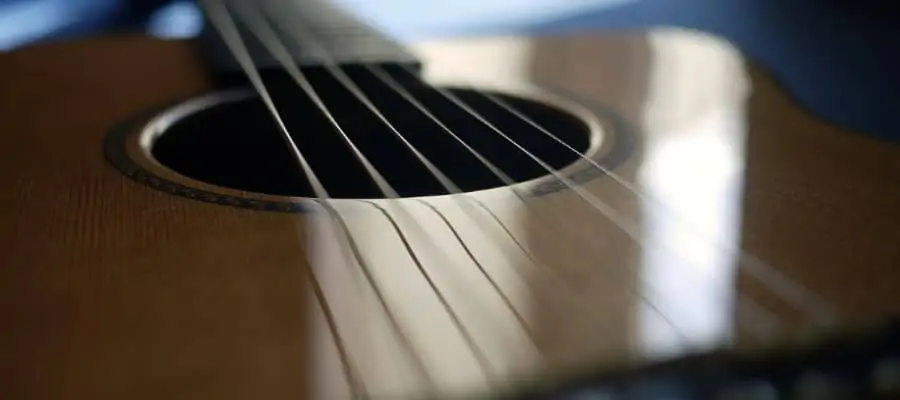
The life of your strings depends may depend on your guitar habits, body characteristics, and the type of strings you are using.
To determine how long your guitar strings can last you need to ask yourself the following questions. How often do you play guitar and how much each session lasts? How sweaty are your hands during the session? What type of guitar strings do you use? Do you clean the strings after the sessions? Do you use a strings conditioner?
The average set of uncoated electric or acoustic guitar strings played 2-3 hours a day lasts one to two months. If you don’t play every day and keep your guitar in case not exposed to dust and air then it should last three months. People that play professionally every day like gigs, concerts need to change these types of strings every month.
Coated guitar strings are known to last and hold their tone. These strings are perfect for those with high acidity in their sweat. People who use these types of strings, don’t play every day, and wiping the strings after playing can last to nine months or more. This doesn’t mean that the strings still sound like new after all that time but still sound good and most of the pro players use this type of strings because they play their instrument more frequently and their tone can last from three to six months.
If you want to learn more about acoustic and electric guitar strings, you can check out my article Can You Use Acoustic Guitar Strings On An Electric Guitar? Should You?
How Often Do Pros Change Guitar Strings?

This also depends on the factors that we mentioned before on how to keep your strings clean and prolong the life of the strings. If you leave your guitar out of the case, even things like humidity and exposure will eat away at the strings and necessitate more frequent changes but on the other side, a professional who plays every day will probably change their strings every three or four gigs.
Professional guitar players who sweat a lot, or spend hours a day playing, especially playing aggressively, will need to change their strings more often than a player who doesn’t.
There is no single answer to how often do professional guitarists change strings. Every one of them has their own personal preferences.
What Happens When Guitar Strings Get Old?

When the strings get old they start to lose their elasticity, tuning stability, the freshness of the sound and they become brittle and they corrode from humidity, dirt, and hand sweat.
This condition makes the strings feel stiffer and harder to fret, and because the strings no longer stretch to reach the fret, they get tighter, causing your notes to go sharp, particularly up the neck.
Also when guitar strings get old they turn brownish and have no more luster as compared to a fresh set of strings. The discoloration of your guitar strings is another sign that you might have to change your strings pretty soon.
How Do I Know When My Guitar Strings Need Changing?
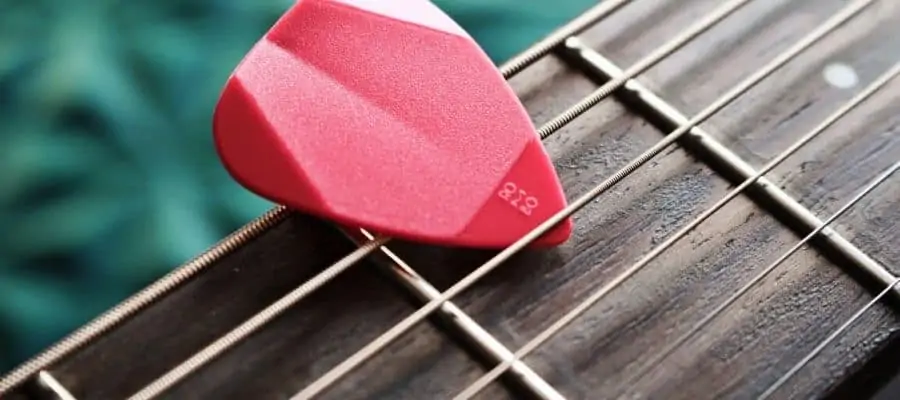
As whole guitar strings are bad when they sound dull, feel uncomfortable on the fingers, have discoloration, are impossible to tune, or when they break. Strings go bad because they get weaker by the buildup of dirt and constant stretching, causing them to lose tunability, strength, and sound. The problem with knowing when it’s time to change your strings is that all the changes mentioned above happen gradually and sometimes are hard to spot.
The most obvious indicator that the strings have gone bad is the loss of tunability. When the strings are bad, it’s impossible to have perfect tuning. The part you can not fix is that even when the open strings are perfectly tuned, every other fret will sound out of tune.
This can be very frustrating and you may start to suspect that something is wrong with your guitar. Fear not, it’s just the strings. A new set of strings will do the trick.
Will Changing My Guitar Strings Make It Sound Better?

The answer is, yes. The lifespan of the strings is between 2 to 6 months depending on their quality. This means the guitar won’t sound perfect if it has been stored for longer than 6 months.
If you already have new strings, do not set them until you have decided to reactivate the guitar. This will save you money and time.
Remember when you first put those new strings on and your guitar sounded so much brighter and alive? As a string age, so does your tone. If your tone sounds clunky or dead and has lost that bright pop or warm resonance that you like it may be time to get that guitar restrung.
What Happens If You Don’t Change Your Guitar Strings?
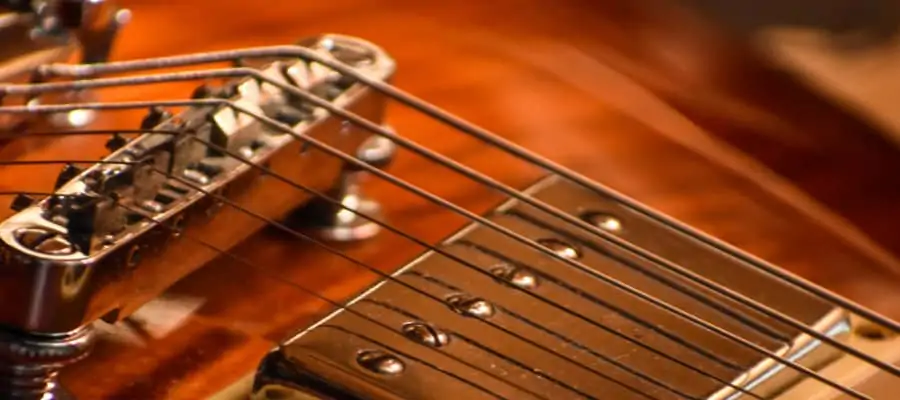
Over time, small kinks begin to form along the length of the strings. These dents are caused by contact with the fret wire, which itself is made of metal. They affect the tone and feel of the strings and also increase the likelihood that the strings will break suddenly.
It’s a good idea to change your before 3 months or 100 hours of use have passed. It’s also a good idea to use coated strings if you like them, as this will give you some insurance if you wait too long to change your strings.
5 Tips To Make Your Guitar Strings Last Longer?
Buy Coated Guitar Strings If Possible
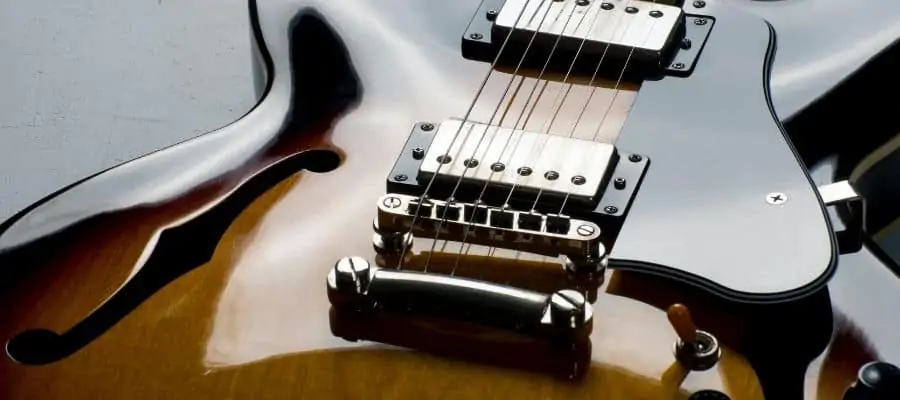
The best option is to buy coated strings for your guitar because they provide a thin layer between the wrap wire and your fingers. The coated layer doesn’t allow dirt and grime to build up as quickly, allowing you to elongate the time between string changes.
Wash Your Hands Before Playing

One of the things that make the tone sound old is the dirt on the strings glued from your hands. It’s always a good thing to wash your hands to get the grease off for the strings to last longer.
Wipe The Strings
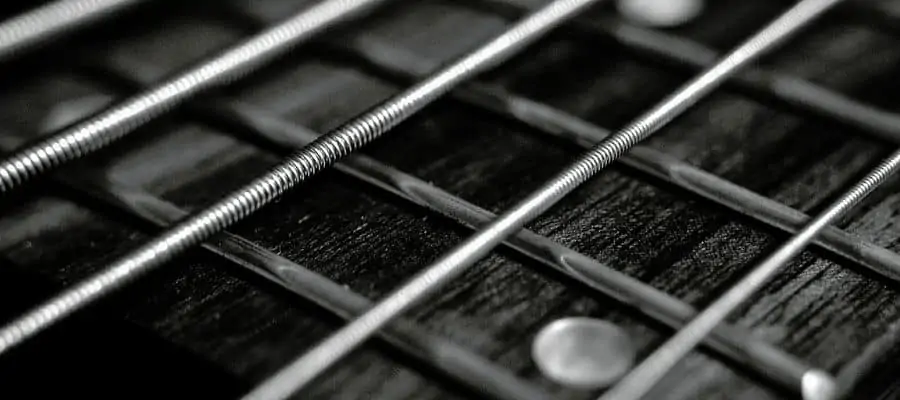
Even after cleaning your hands, it can still get sweaty and oily especially when you play your instrument for an extended period. Wipe each and every string from top to bottom to ensure that none of them ruin your tone.
Use Guitar String Cleaners

There are some products that you can use to clean strings. The most used ones are rag or cloth and lubricants. A microfibre cloth is recommended to prevent lint from getting caught in the grooves of the guitar strings, while lubricating guitar strings can’t be effective as cloth, they help to reduce the squeaking noises you hear as your fingers move on the strings.
Store Your Guitar

Storing your guitar instrument in the open will allow the dirt to accumulate on the strings, and this is how corrosion starts. Keeping your instrument in a hard case or bag will keep away the dirt and save you a lot of trouble.
Top 3 Coated Guitar Strings That Last Longer
Elixir Strings NANOWEB Coating
- Electric guitar strings constructed with nickel-plated steel wrap wire
- Played for the same crisp tone as an uncoated string
- OPTIWEB Coating provides a natural feel
- Our coating technology protects against common corrosion and debris...
These are the only coated strings to protect the entire string with an ultra-thin coating, keeping the gunk out of the gaps between the windings
They provide a smooth feel that is easy on your fingers and enhances playability.
Ernie Ball Coated Electric Set
- Cobalt produces a stronger magnetic relationship between pickups and...
- Cobalt electric guitar strings provide an extended dynamic range,...
- Wound strings consist of Ernie Ball’s Cobalt alloy wrapped around a...
- Preferred by players across many genres, Regular Slinky’s 10-to-46 gauge...
The Ernie Ball coated strings are treated with groundbreaking nanotechnology that repels unwanted moisture and oils that negatively impact your tone.
They maintain the feel and sound of uncoated sets, combining the added protection with the vibrant tone Ernie Ball customers have relied on over the years.
D’Addario NYXL0942-3P Nickel Plated
- CORROSION-RESISTANT, EXTENDED LIFE - XT Nickel electric strings feature an...
- BRIGHT, VERSATILE TONE - Nickel-plated steel wrap wire provides a bright,...
- STAYS IN TUNE, STRONGER STRING - Fusion Twist technology assures XT Nickel...
- EARN REWARD POINTS - XT Nickel strings come with a code, which you can...
The NYXL strings offer higher break strength, enhanced tuning stability, and accentuated mid-range frequency response.
They are designed with super light gauges for maximum flexibility.
Top 3 Guitar String Cleaners
You can also check this article to know more about guitar string cleaners Best Guitar Strings Cleaners & How To Use It & What To Avoid
Music Nomad – String Fuel Cleaner And Lubricant
- CLEAN STRINGS to last longer and sound better with our hybrid blend of...
- REDUCE FINGER NOISE & SQUEAKING that you and your audience hear when...
- PLAY FASTER after using String Fuel because cleaner strings with the light...
- OTHER BENEFITS: Large pad covers all 6 strings in one swipe, does not hurt...
This product allows you to both clean & protect your strings to last longer and sound better while reducing finger noise and enhancing the speed you can slide your fingers and contain oils that will sustain your strings for a long time. It is also silicone-free & safe for any finish and even conditions unfinished fretboard wood.
Jim Dunlop – Ultraglide 65 String Conditioner
- Comes with a felt dauber top
- Dispense enough liquid to soak the bauber before using
- Model Number 6582
One of the best, this product shields strings against tarnish and corrosion, extending their playing life. Delivers silky smooth conditioning to string surfaces, eliminating finger squeaks. This product really restores brilliance to your strings.
GHS Strings – FAST FRET
- Premium string and neck lubricant and string cleaner for all stringed...
- Silicone free cleaner is liquid in an applicator, not a spray
- Use it on strings, fretboard, back of neck
- Lets fingers slide freely and keeps strings clean
Fast Fret has been the favorite tool of working guitarists since its introduction back in the 1970s. It is Silicone free cleaner, and you can use it as string cleaner, fretboard cleaner, and also on the back of the necks. Fast Fret is not a spray, and it contains no silicone. It’s a liquid in an applicator.
Conclusion
Do not expect too much from a guitar that has not been played for months and it is a bad investment to set a new pair of strings to a guitar that you are not planning on using daily. It is better to keep the strings unpacked and change them once you plan on playing them regularly.
Putting new strings is great but can be frustrating to tune at first. This doesn’t necessarily mean something is wrong with your guitar, it just takes an hour or two for most new strings to settle in. If you are in a hurry, stretching the strings can speed up the process!
Also wiping the strings after playing and keeping your guitar stored in a case can prolong the life of the strings.
If you found this article useful, you may want to save this pin below to your Guitar board.

Last update on 2024-07-26 / Affiliate links / Images from Amazon Product Advertising API
Recent Posts
Tuning your guitar to E Flat, also known as E♭ tuning or half-step-down tuning, involves lowering each string by a half step. This creates the notes E♭, A♭, D♭, G♭, B♭, E♭ or D#, G#,...
50 Campfire Guitar Songs To Ignite Your Next Singalong - Chords Included
Gathering around a crackling campfire with friends and a guitar is one of life's simpleest pleasures. Picture yourself strumming the chords as everyone belts out the chorus under a starry sky. From...

